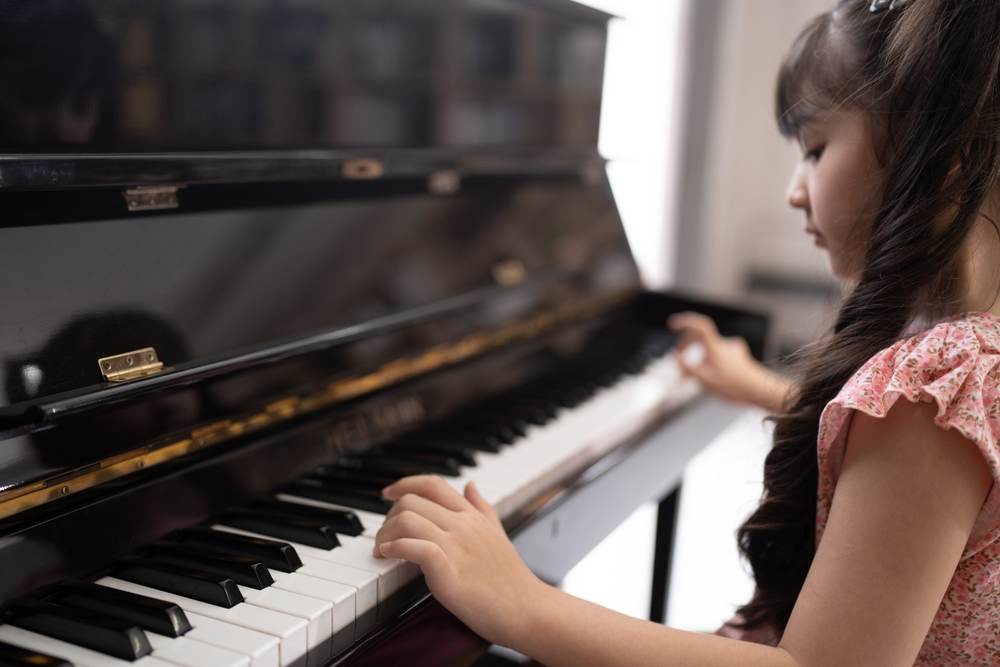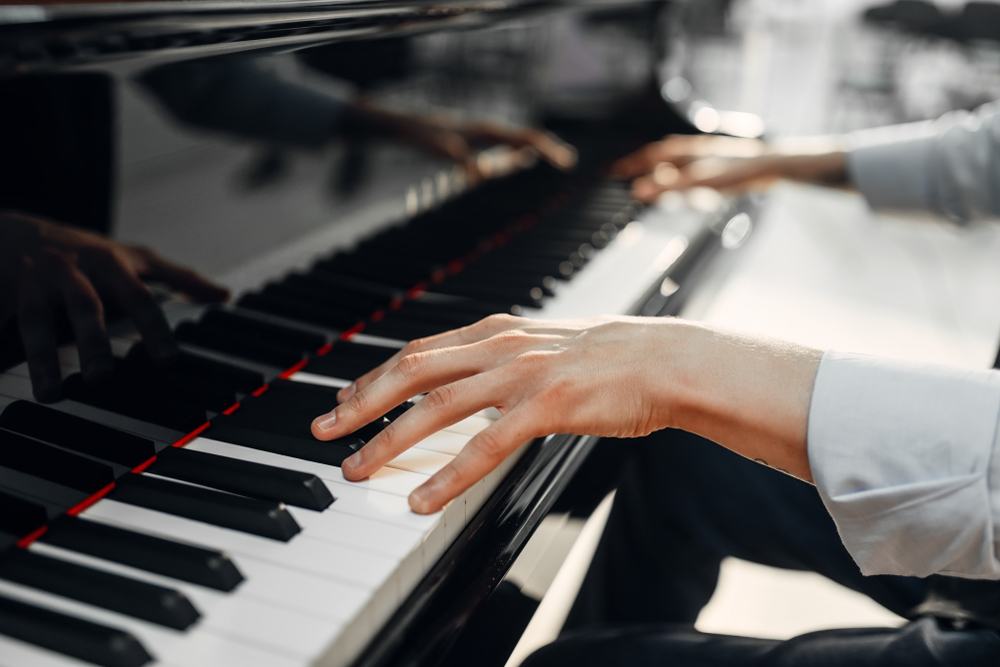
Learning how to play the piano can be such a rewarding experience for kids of all ages. When your child learns to play the piano, they can build confidence while enhancing their musical understanding. One aspect of learning the piano involves how to memorize piano music. Memorizing music offers several benefits for kids and can result in a more polished and expressive performance. In some instances, sheet music may not be readily available, and memorization can allow kids to play easy piano pieces without needing to rely on it. In general, playing the piano without sheet music provides your young piano player with a world of opportunity and a chance to grow and mature as a musician. When kids memorize piano music, it can also challenge and strengthen their memory, which offers numerous benefits as your child learns and grows.
How Long Should It Take to Memorize Piano Music?
The time it takes to memorize piano can vary greatly depending on a variety of factors, including age, skill level, the complexity of a piece, and the amount of time spent practicing. In general, beginners with less than a year of experience playing the piano may take a few weeks to memorize a simple piece of music. Beginners who are still learning to read sheet music may take longer as they work on both these skills. Intermediate-level piano players with 1-3 years of experience may find a simple piece of music easier to memorize, while a moderately difficult piece may take weeks or months to memorize. Advanced players with over 3 years of experience can often memorize a piece of music more quickly, within a matter of days or weeks. The complexity of a piece and the amount of practice time are significant factors in how long it should take to memorize piano music.
Young Pianists and Memorization
While age does not directly determine how long it takes to memorize piano music, there are a few things to consider when helping kids memorize piano music. Young children are constantly growing, and their brains are quite flexible, which makes it easier for them to absorb new skills and ideas. The first step for children is often learning how to read sheet music. Once this skill is grasped, young pianists may change from beginners to intermediate players with ease as they build their skill level and explore more complex piano music. It also helps children to learn how to better understand and interpret the music, rather than solely memorizing the notes. Consistent practice and progress should be encouraged and rewarded rather than focusing simply on memorization. Children appreciate encouragement as they try new things and gain confidence.
5 Practice Tips on How to Memorize Piano Music

Here are five practice tips on how to memorize piano music.
Break Down the Piano Music into Pieces
Instead of trying to memorize an entire piece of music all at once, break the music down into smaller sections. When you break down the piano music into pieces for kids, it helps them focus on learning and memorizing one section at a time. You can start with easier sections to gain comfort and confidence in this new skill before gradually moving on to more challenging sections.
Practice Hands Separately When Learning to Play the Piano Piece
Practicing hands separately is an important technique for anyone learning how to play piano, including kids. Young pianists and beginners who are still developing finger strength and coordination can benefit from practicing hands separately. Pay attention to the finger placement and technique of one hand and a short section of the music before swapping to the other hand. Once your child gets more comfortable with each hand separately, they can combine them together to move through the section slowly until it becomes more comfortable.
Play the Piano Music Slowly & Repeat
When learning to play the piano, it helps to start slowly and make time for repetition. While your child might be tempted to play through an entire song in their excitement, this could actually become too challenging or discouraging for a beginner. Instead, try playing the music slowly and gradually increase the speed as they become more comfortable with their skills. Starting slowly and repeating the same section can also help the brain memorize music.
Practice Sight Reading the Piano Piece
Sight reading is another essential skill for musicians of all ages and skill levels. Sight reading is the ability to read and play a piece of music you may never have seen before. When you practice sight reading new pieces, it can help you read through sheet music and understand it faster. It’s okay to mess up as long as you keep going and gain confidence along the way. Sight reading helps young pianists develop greater musical fluency and learn new pieces of music quickly. Become a well-rounded musician by improving sight-reading ability with regular practice.
Improve on Piano Techniques While Practicing
Part of memorizing piano music involves repetition, which offers a chance for children to practice certain techniques without even realizing it. Playing through a section of music to help with memorization allows a young pianist to focus on their posture, hand position, timing, rhythm, and more. Playing through music while working on memorization can also help improve a child’s finger strength and dexterity, which makes it easier to play complex pieces. Repeating a section multiple times allows a piano player to explore expression and dynamics with techniques like crescendo and decrescendo for added interest and variety in their playing style.
How to Manage the Nerves When Memorizing & Playing Piano Music
Learning something new, like playing the piano, isn’t always smooth sailing. Your child may encounter challenges along the way that makes them feel nervous or uncertain. Managing nerves when playing the piano and memorizing music is an important part of becoming a confident and successful performer. Here are a few tips for how to manage nerves when memorizing and playing piano music:
- Practice regularly and familiarize yourself with the music
- Visualize yourself playing the music confidently and successfully
- Practice deep breathing exercises to calm your nerves
- Start slow and gradually increase your tempo as you get comfortable
- Focus on the present moment and the music you are playing
- Repeat sections of music as much as you need to gain confidence Remember, nerves are a normal part of learning to play an instrument and performing. The key is to find the best way to manage your nerves so you can play with confidence and ease!
Play the Piano Better with Lessons In Your Home
Help your child build confidence as a musician and increase their repertoire with private piano lessons with Lessons In Your Home. We’ll connect you with passionate, skilled teachers who work with your schedule and meet you where your child is most comfortable. Private lessons provide one-on-one support for your young pianist to learn how to read and memorize piano music and become a well-rounded musician. Start Lessons Now with Lessons In Your Home and get paired up with a piano teacher in your area who will help your child grow and develop into a wonderful musician.
